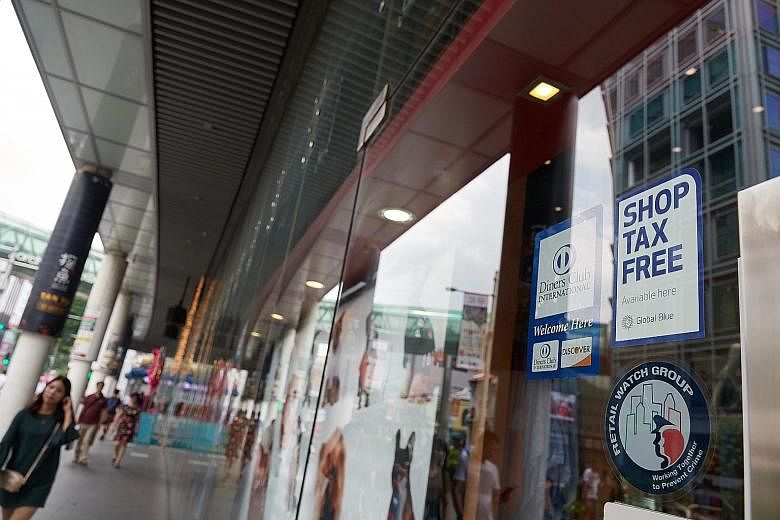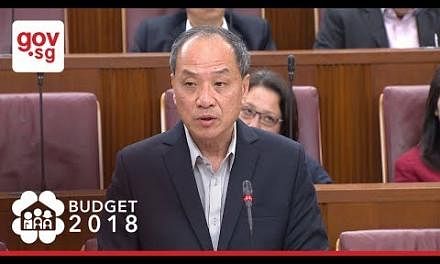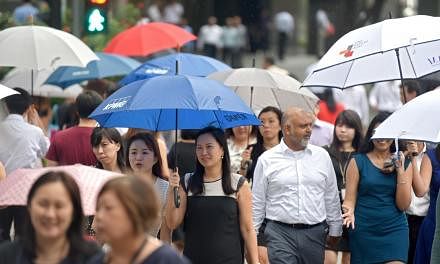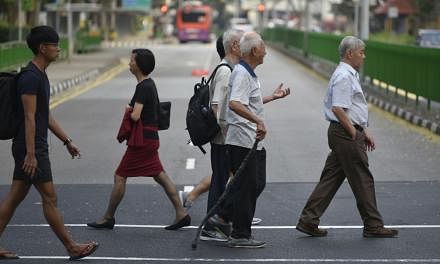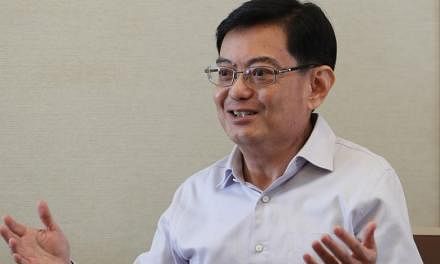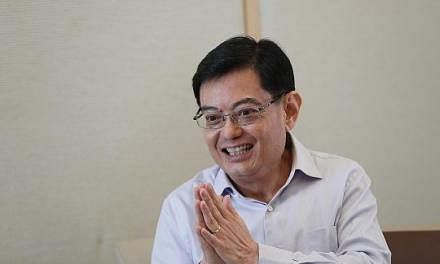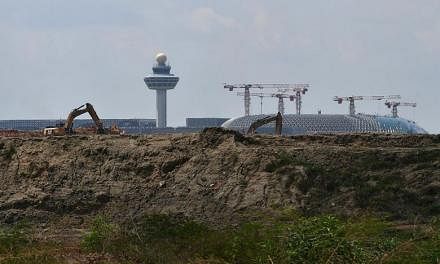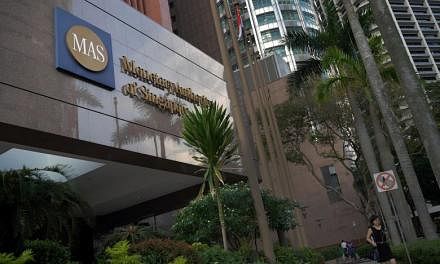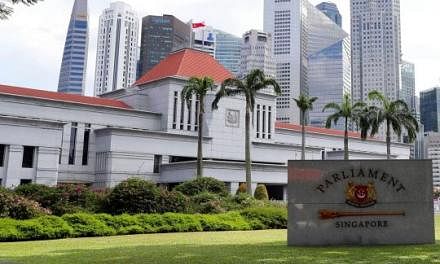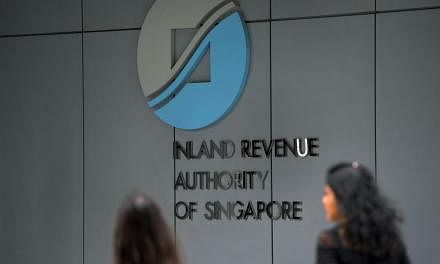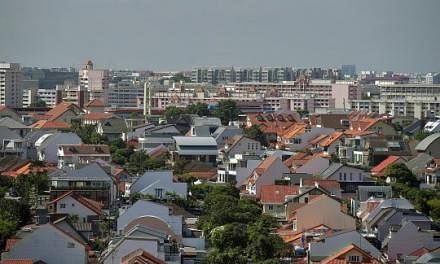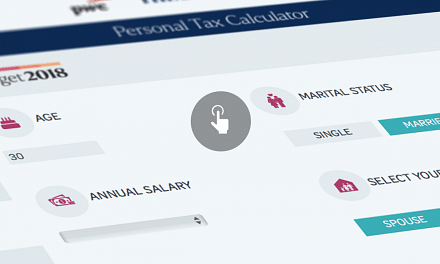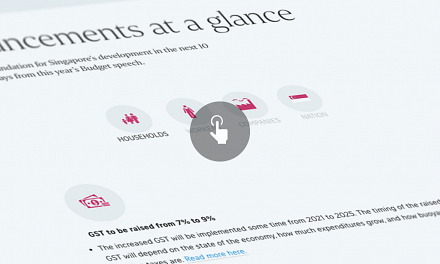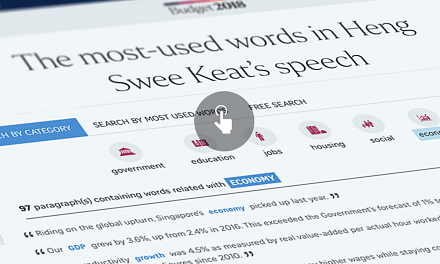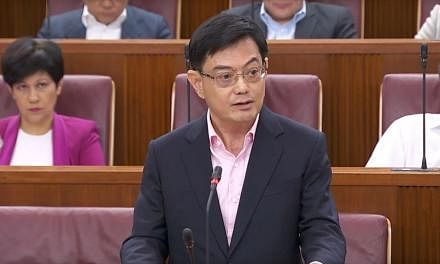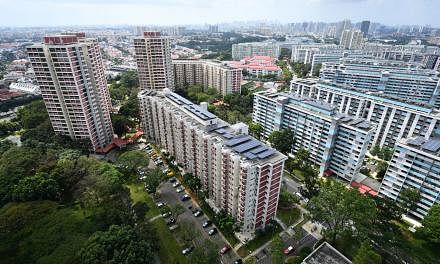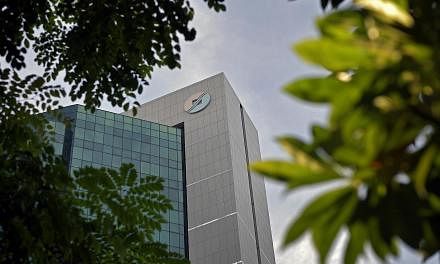The goods and services tax (GST) hike from 7 per cent to 9 per cent has been announced right after one of the largest Budget surpluses in Singapore's history - making it a tough but not impossible sell, say analysts.
The $9.6 billion surplus for the 2017 financial year far exceeded the original estimate of $1.9 billion.
It is also the largest recorded surplus in dollar value - although, at 2.1 per cent of gross domestic product, it is smaller in percentage terms when compared with the 2007 surplus of 2.8 per cent.
This has raised questions about whether it would be difficult for the Government to justify to Singaporeans the need for more taxes.
Analysts and political observers interviewed say it would not be easy.
"Certainly, it is not an easy sell," said Mr Richard Mackender, tax partner at Deloitte Singapore and South-east Asia.
"However, it is the case that the surplus arose in 2017, whereas the GST increase is scheduled for 2021 - four years later. The Government will be looking to demonstrate that it is being prudent and looking ahead, which is what citizens expect of it."
He added that to build a fiscally sustainable and secure future for the country, the Government needs to ensure a stable revenue flow.
"Relying on one Budget surplus is not a sound basis for a sustainable fiscal model," he said.
Finance Minister Heng Swee Keat said yesterday that the two biggest contributors to the bumper surplus last year - revenues from the Monetary Authority of Singapore (MAS) and stamp duty collections - are not stable, recurring income.
"We do not expect either to occur every year. It is not a structural surplus. We cannot base our long-term fiscal planning on the basis of exceptional factors being positive, year after year," he said.
In contrast, the long-term rise in expenditure, which the GST hikes are meant to fund, is a result of recurring items, such as higher spending on healthcare to cope with an ageing population, he added.
MAS put $4.5 billion back into the government coffers last year, despite not paying anything in the six preceeding years. The contributions arose because of much higher returns from the official overseas reserves managed by MAS, which in turn came about, The Straits Times understands, due to currency movements.
Revenues from stamp duty reached $4.7 billion - which was $2 billion more than estimated. This stemmed from a pickup in the property market, said Mr Heng. Private property transaction volume, for instance, grew by 50 per cent in 2017.
The Finance Ministry's outlook statement for 2018 said: "Stamp duty collections are expected to decrease by $1 billion (in 2018)... as the property market softens."
People's Action Party MP Liang Eng Hwa, who chairs the Government Parliamentary Committee for Finance and Trade and Industry, acknowledged that there may be difficulty in explaining the tax hike amid a Budget surplus, as it may not be intuitive to the public.
He intends to emphasise two points to residents in his ward. First, the surplus and tax hike are happening in two different time-frames. Second, the causes of the surplus - currency movement and an active property market - are factors that could well change in the years ahead, and are not recurring.
"In a property market downturn, stamp duty collections can plunge," said Mr Liang.
Workers' Party Non-Constituency MP Daniel Goh said WP MPs are studying the details of the Budget and will meet later this week to discuss the party's response in Parliament for next week's debate.
Political observer Felix Tan of SIM Global Education said the discussion about a possible GST hike in the many weeks leading up to yesterday's statement prepared many Singaporeans mentally for it, and softened its impact.
With the GST hike kicking in only after 2021, the pain is also less acute, added political observer Lam Peng Er, noting: "Human beings are creatures of gratification, and deferred pain has a much smaller impact."
But if the Budget continues to run large surpluses over the next few years, people may start to doubt the claim that the surplus is "non-recurrent", he added. If so, calls for the GST hike to be shelved may start to gain traction - and the opposition may then campaign on this issue at the next general election, he said.
Institute of Policy Studies deputy director Gillian Koh noted that this is the first time a broad-based tax hike here has been announced in one parliamentary term and implemented in the next.
"It risks becoming a political hot potato over a general election, whatever the merit of a long period of advance notice," she said.
One way to cushion the political impact is to work towards strong economic growth, which will make the GST hike "water off the duck's back". Another way is for the Government to build a social compact with citizens such that with the higher GST rate, any future Budget surplus will be shared in some proportion with citizens in the form of cash payouts - as it was this year, she said.
For more Budget coverage, visit the ST microsite at str.sg/budget2018
